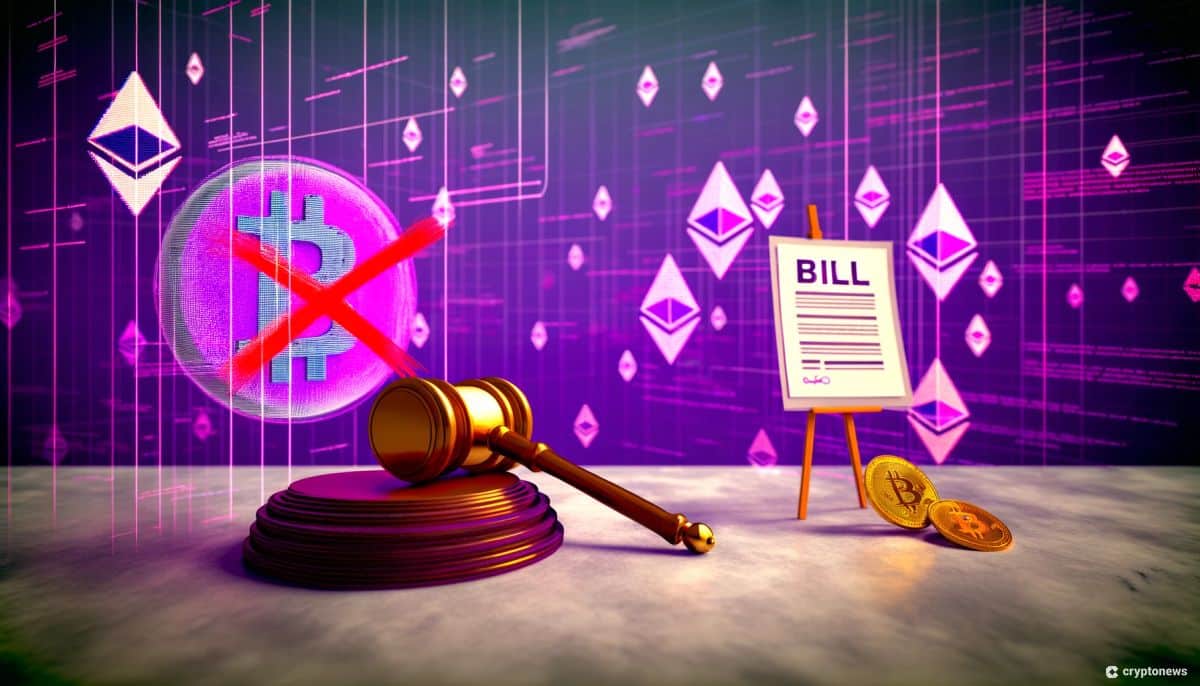US Lawmaker Raises Concerns Over Elizabeth Warren’s Crypto Bill’s Impact on Counter-Terrorism Efforts

A US official has raised concerns about a provision in Senator Elizabeth Warren’s proposed bill on digital assets.
During a hearing on “Crypto Crime in Context” held on February 15, Representative French Hill and other lawmakers questioned crypto experts about the implications of subjecting digital asset miners and validators to the same regulations as financial institutions.
Hill is the chair of the House Financial Services Subcommittee on Digital Assets, Financial Technology, and Inclusion, which is intended to promote financial and economic inclusion.
Senator Warren’s bill, called the Digital Asset Anti-Money Laundering Act, aims to modify the Bank Secrecy Act to impose new standards on crypto providers in order to combat the financing of terrorist organizations.
JUST IN: 🇺🇸 U.S. Congressman French Hill says "bad actors still prefer to use traditional finance rather than digital assets." pic.twitter.com/XZ8NGXaOl4
— Halil Özdal (@HalilBey22) February 15, 2024
Warren’s Bill Won’t Prevent Terrorists from Using Crypto
Representative Hill suggested that altering the requirements for miners and validators would not effectively prevent terrorist organizations from using cryptocurrencies.
Although he did not explicitly mention Senator Warren’s bill, his comments were in line with the concerns surrounding it.
According to Michael Mosier, co-founder of Arktouros and former acting director for the Financial Crimes Enforcement Network, the majority of illicit financing in the crypto space occurs through centralized exchanges, not by miners or validators.
Mosier highlighted that miners and validators function as block producers and verifiers, operating similarly to internet service providers.
He argued that they should not be subjected to the same Know Your Customer regulations as they are essentially processing data through mathematical algorithms.
“Miners and validators are essentially producing blocks and verifying blocks, and they’re operating like an internet service provider,” said Mosier.
“That’s not something that we would subject to [Know Your Customer] in the sense that it’s just data being processed.”
Since there is no customer involved in the mining and validation process, it does not make sense to apply the same regulations that are designed for identifying and verifying the identity of individuals.
The recent hearing was the second conducted by the House committee in the past four months to address the illicit use of cryptocurrencies, with a specific focus on terrorism financing.
Representative Patrick McHenry, who chairs the full committee, announced in December that he will not seek re-election in 2024, potentially leading to a leadership transition depending on the outcome of the election.
Use of Crypto in Illicit Activities Exaggerated
The issue of crypto financing terrorism gained significant attention in the US government following the October 7 attack by Hamas on Israel.
Senator Warren’s bill has garnered support from many who advocate for stronger measures against terrorist financing.
However, according to a report from Chainalysis on February 15, the volume of cryptocurrency transactions associated with illicit activities actually decreased by more than 29% from 2022 to 2023, dropping from $31.5 billion to $22.2 billion.
The report pointed out that traditional, fiat-based methods such as financial institutions, hawalas, and shell companies remain the primary means of financing for terrorist organizations.








